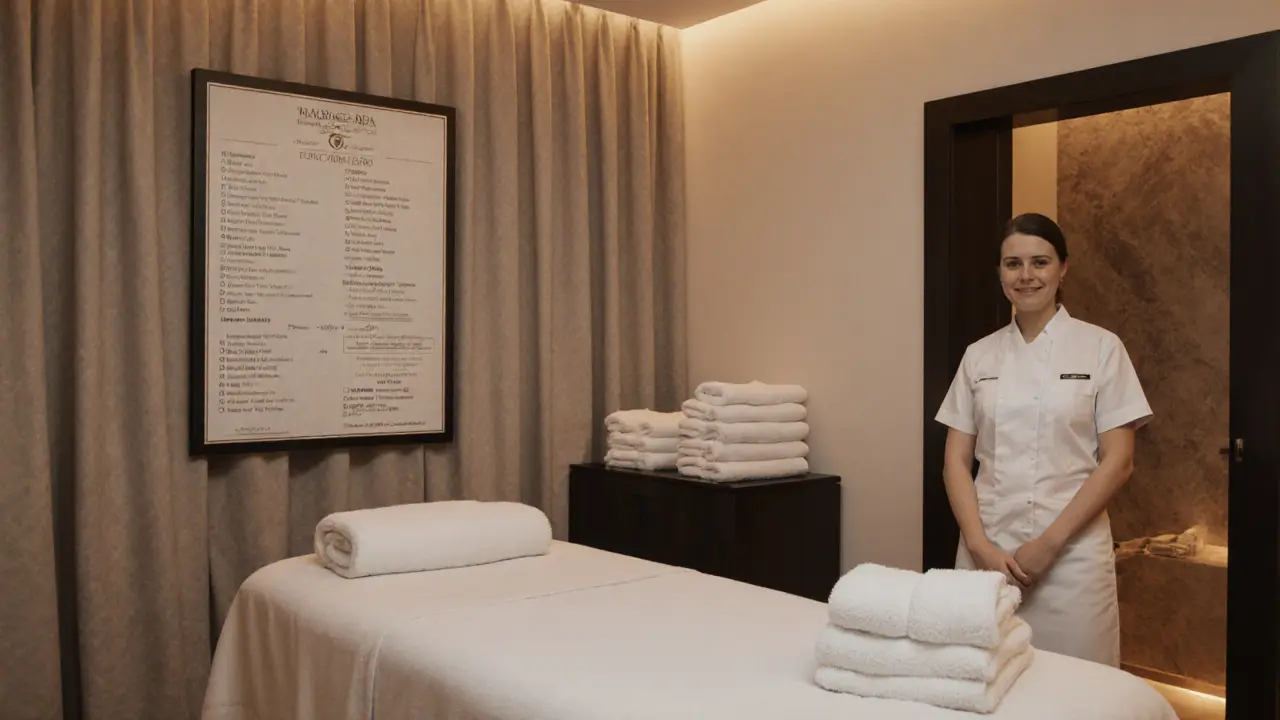Dubai Massage Etiquette: What You Need to Know Before You Book
When people talk about Dubai massage etiquette, the unwritten rules and legal boundaries around massage services in Dubai, including what’s allowed in spas versus underground setups. Also known as Dubai spa conduct, it’s not about tipping or robe colors—it’s about staying out of jail. Dubai doesn’t have a gray area when it comes to massage. What looks like a relaxing spa day online could be a trap for tourists who don’t know the law. The city’s strict rules aren’t just about morality—they’re about survival. If you’re thinking about booking a massage, you need to know what’s legal, what’s dangerous, and who’s really running the show behind those glossy Instagram ads.
The sex massage, a service marketed as therapeutic but legally classified as prostitution in the UAE. Also known as erotic massage, it’s one of the most common traps for foreigners is everywhere on social media. But here’s the truth: there’s no such thing as a legal sex massage in Dubai. Every ad promising "private sessions," "discreet therapists," or "VIP treatment" is either a scam or a setup for arrest. The police don’t raid clubs—they raid apartments. And if you’re caught, you’re not just fined. You could face deportation, a criminal record, or even jail time. Even if the person offering the service seems professional, they’re likely part of a network tied to human trafficking or organized crime. The massage industry UAE, the legal and illegal network of bodywork services in the UAE, ranging from licensed spas to underground operations is split into two worlds: one that follows the law, and one that hides from it. The legal side? Think high-end resorts with certified therapists, no skin contact beyond shoulders and back, and clear pricing. The illegal side? Private apartments, cash-only payments, and no receipts. And if you’re wondering why so many people get caught—it’s because they assume "no one will notice." They’re wrong.
There’s also the cultural side. In Dubai, touch is controlled. Public displays of affection, even a hand on a shoulder, can raise eyebrows. In a spa, you’re expected to keep your underwear on. No "full body" means no intimate contact. Any therapist who suggests otherwise is breaking the law—and putting you at risk. Even tipping has rules. Over-tipping can be seen as an invitation for more, which can lead to trouble. And don’t assume that because a place has a fancy website or English-speaking staff, it’s safe. Many are run by foreign nationals who don’t understand UAE law either. The bottom line? If it feels off, it is. If it’s too cheap, it’s a trap. If it’s private, it’s illegal. And if you’re looking for a real, safe massage? Stick to five-star hotels. They’re expensive, but they’re the only place where you won’t wake up in a police station.
What follows is a collection of real stories, legal breakdowns, and insider tips from people who’ve been there—some by choice, others by mistake. You’ll learn what actually happens when clients get caught, how agencies hide in plain sight, why some massage parlors are fronts for something darker, and how to spot the red flags before you walk through the door. This isn’t about judgment. It’s about knowing the rules so you don’t become a headline.
